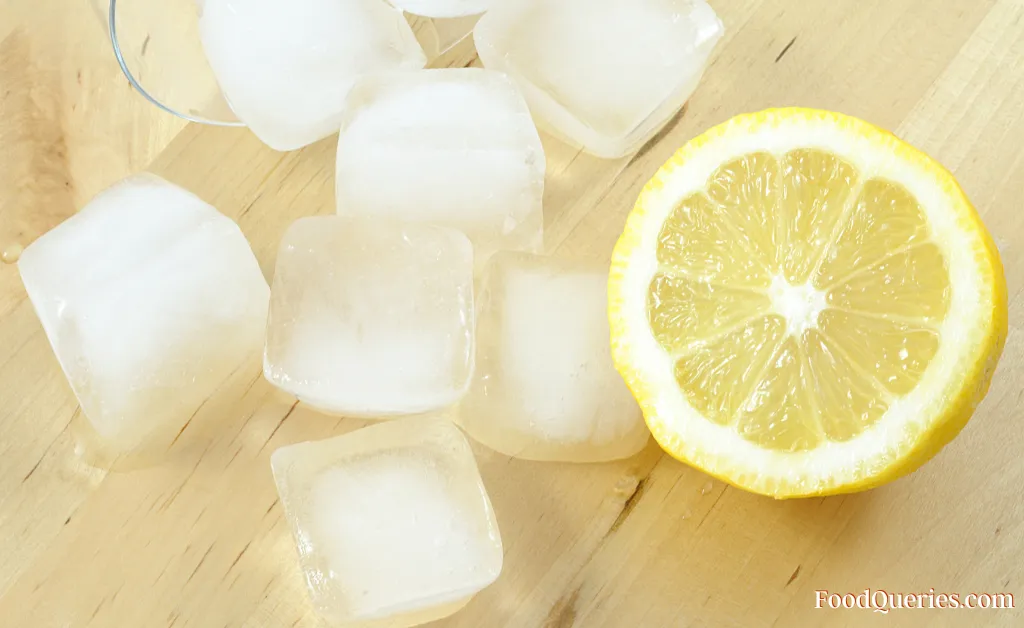“When life gives you a lemon, make a lemonade.”
You must have heard this saying more than once. It is because lemon or lime is a versatile fruit with several benefits. Whether it is a refreshing lemonade or a hot cup of lemon tea on a chilly morning, lemons are your best friend.
But, Does lemon juice go bad?
Well yes, fresh lemon juice can last for 4-5 days easily if stored in an airtight container. On the other hand, store-bought lemon juice has added preservatives that can make the juice last for 4 to 12 months easily.
So, let’s dig a little deeper into it.
Does Lemon Juice Go Bad?
Definitely, YES!
Just like any other natural fruit, lemons can go bad over time. If you think squeezing the lemon can help prevent it from going bad. Then, my friend, you are in for a shock. Bad lemon juice can easily be set apart from fresh ones based on its smell and taste. But if you let that juice sit for longer, you can find mold or bacteria making it their home. The mold formation will make it appear disgusting and give off a rotten smell. Which, let us all agree, is GROSS.
But before you go all negative and start thinking lemons are not worth it. Read further because there is so much more to lemons. Unlike other fruit juices, lemon juice tends to have a longer shelf life when stored correctly. A common reason for this is that lemon juice has fewer preservative chemicals. It is because it has citric acid, which works as a natural preservative.

But how long can citric acid make lemon juice last before it goes bad? Storing fresh lemon juice in an air-tight container will give you a couple of days before it goes bad. But if you use lemon juice from commercial brands, it can easily live for 4 – 12 months. Take a quick peek at the manufacturing date before you decide to make a purchase.
Also Read: How long does watermelon last?
How to Tell if Lemon Juice has Gone Bad?
Not sure if the juice is adequate to consume or not?
Below is a list of several signs that will tell you the quality of lemon juice. Check them out and see if you have ever faced such an issue with your juice.
1. Keep an eye out for mold
If you see your lemon juice has a dust-like texture forming on the edges, it is time to say goodbye to it. This dust-like texture will have a dull green or brownish tone with the formation of pores. To avoid molds from forming in your juice, make sure you close the lid tightly. Also, ensure you use a clean and dry container to prevent bacteria birthing.
2. Color check

The easiest way to differentiate between fresh and rotten juice is by the color it displays. Fresh lemon juice has a lemon-yellow or light-yellow color. Bad lemon juice, on the other hand, will have a darker shade of yellow. Bad lemon juice can also change its color to a dull brown when left for a long. Once that happens, it is time to toss the lemon aside.
3. Always take a whiff when in doubt
Fresh lemon juice has a pleasant and fresh odor. If you smell any other odor other than fresh lemons, it’s time to toss it. An easy way to identify bad lemon juice is by looking out for a fermented smell. Once you smell this unpleasant smell, it is time to throw the juice away.
4. Taste test
One of the best ways to know the quality of your lemon juice is by tasting it. Remember, lemon juice will lose its original citrusy flavor before it goes bad. The sour and tangy taste will be overpowered with a bitter aftertaste.
Also Read: Does Worcestershire sauce go bad?
Fresh Lemon Juice or Commercial Juice- Which Goes Bad First?

Although the juice from a fresh lemon is healthier, it does not increase its shelf-life. Commercial lemon or lime juice, on the other hand, goes through a thermal pasteurization process. This process kills the breeding of microorganisms that can contaminate the juice. Once the juice goes through the pasteurization process, it makes the juice sterile. The process, however, does not alter the lemon juice’s taste, smell, or color. Therefore, this gives your commercial lemon juice a better shelf life than freshly squeezed-out lemon juice.
Tip: Whether you use fresh lemon juice or a store-bought one, make sure you store them in an air-tight container. Leaving it open at room temperature will significantly reduce its shelf life.
Consumed Rotten Lemon Juice? Look Out For These Symptoms
One common risk that comes with consuming rotten juice is food poisoning. A lemon juice that has gone bad is home to several bacteria and molds. This can lead to an infection in the stomach. Other symptoms of food poisoning that you can experience are chills and nausea. Apart from these, you can also have pangs of stomach ache and cramping. Constant vomiting and dehydration can also lead to weakness and diarrhea.
Food poisoning can sometimes appear within 3 – 4 hours of eating rotten food. Or can take up to three days for your body to show signs of consuming contaminated juice/food. Once you feel the symptoms building, you must seek medical attention at once.
Want to Make Lemon Juice Last Longer? – Here’s How!

Don’t know what to do with the leftover lemon juice? A sure-shot way to keep the lemon juice fresh is in the refrigerator. This will reduce its contact with microorganisms and oxygen, increasing its shelf-life.
Another option to help you increase your juice’s shelf life is freezing it. Pour the excessive lemon juice into the ice cube trays. Defrost these lemon ice cubes whenever required. This is an easy and convenient way to reuse the leftover juice for your requirement. The ice cubes will also make a refreshing drink in a scorching summer.
Frequently Ask Questions (FAQs)
Q1. How can you tell if lemon juice has gone bad?
Ans: You can easily check if your lemon juice has gone bad if you see the following:
- Changing color – A bad lemon juice becomes darker than its normal color.
- Smells rotten- If the lemon juice does not smell fresh like freshly plucked lemons, it’s time to throw it away.
- Unpleasant taste – Take a tiny sip of the lemon juice to be sure. It is time to toss it away if you have a bitter taste instead of the tangy one.
Q2. Can lemon juice go bad in the fridge?
Ans: The lemon juice lasts longer in a fridge than at room temperature. However, it does not prevent it from going bad. You also need to store the juice in an air-tight container before placing it in the fridge.
Q3. Can you get sick from expired lime juice?
Ans: Yes. You can get sick from rotten lime juice like any other consumable food. You can get food poisoning, vomiting, or diarrhea if you consume expired juice.
Q4. What is the shelf life of unopened lemon juice?
Ans: If you have an unopened lemon juice bottle, it can easily stay safe for about 12 to 18 months. You can also refrigerate the unopened bottle to extend its shelf life.
Q5. Can lemon juice make you sick?
Ans: Although lemons are a strong detox agent, consuming too much lemon water can have side effects. It can cause GERD, acid reflux, nausea, heartburn, and vomiting.
The Bottom Line
Now that you know every ins and outs of a lemon, it is time to apply it in real life. If you see lemon juice sitting open for more than a day, it is time to throw it out. Make sure you store your juice in an air-tight container. Remember to refrigerate the fresh or commercial lemon juice. Last, don’t consume the juice if it appears dark or gives off a rancid odor. That said, it is time to put the juice to good use before it goes bad!









